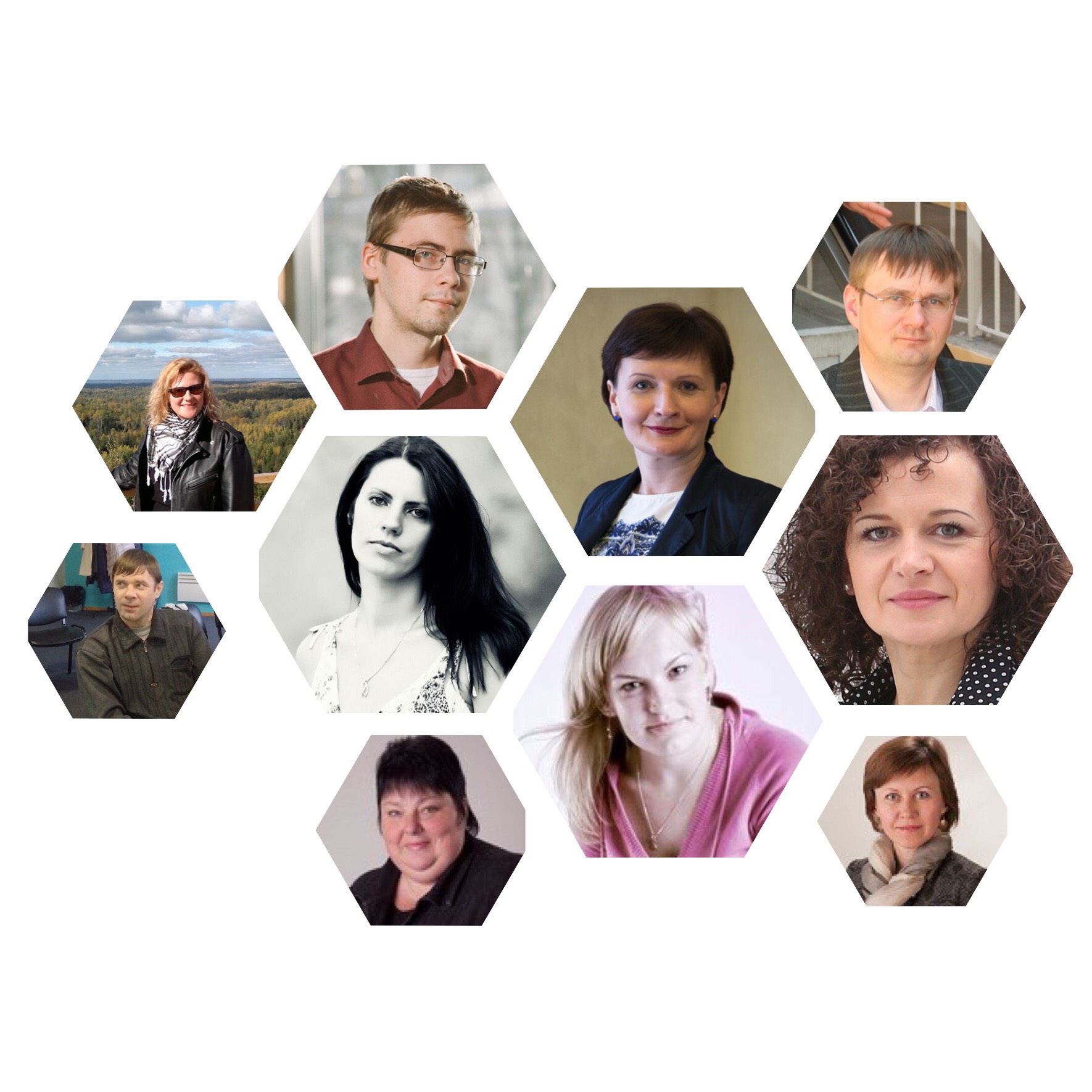Youth unemployment is becoming one of the major problems of modern society. The relevance of education to the labour market is still a challenge. Entrepreneurs are looking for employees with work experience in a particular area, but young people often lack practical experience during the study process. As a result, they face significant difficulties starting their first employment.
The target groups of the project are students of Rēzekne Academy of Technologies and Northern Lithuania College, their lecturers, as well as entrepreneurs who are introducing new products to the market.
The project introduce a new problem-based methodology for training in real business environment. It is based on 10 advanced study courses and 20 company products in each country (20 study courses and 40 companies in total). The practical studies focus on the commercial practices, the problems and needs of product commercialization to the markets. Groups of students is working on development of proposals and are presenting their ideas to the entrepreneurial community. Additionally, a life-long learning course and an appropriate learning infrastructure has been launched.
As a result, young people have experience in real working environment, they are introduced to new products, engaged in cross-border networking. After the studies, graduates received a diploma with a specialization and working experience, which is so important in finding a job.
Renovation of SalesLab in Rezekne Academy of Technologies. From outside only doors and windows has been changed, some minor improvements to brick walls to sustain old view. Total investment costs – EUR 100 518.96.
SalesLab in RTA is equipped with the laborathory for Experimental Milk products excellence service, Experimental Vegetables and Fruit products excellence service, Experimental excellence service for General products, Viewers zone and degustation zone, Experimental Meat products excellence service. Also there are free space for students, teachers and business representatives where to meet in informal atmosphere. Total investment costs – EUR 61 964.87
Renovation of SalesLab in Northern Lithuania College. Inside the building there is made renovation, main works to establish SalesLab are following: ceilings (171,57 sq.m.), walls (290 sq.m) and floors (171,57 sq.m), changed inside doors, renewed electrical (installation), also renovation of 2 bathrooms (20 sq.m.), plumbing and heating systems, ventilation system, security and fire alarm system is done. And outside the building doors is changed and bicycle rack build. Total investment costs – EUR 81 710.00.
PBL Training materials:
pbl_training_1
pbl_training_2
pbl_training_3
pbl_training_4
First PBL training session took place in Šiauliai, Northern Lithuania College. During the training teachers learned about methods for different study fields and class organisation techniques in PBL, which help to develop student transferable skills as an important part of employ-ability competence.
First new teaching semester testing started and commenced (SalesLabs Spring’18 Season) with first improved courses based in Problem Based Learning and the concept of Sales Laboratory. Project has its own section in RTA web page and in NLC web page.
Teacher training session in first period was concluded as successful 10 (5LV+5LT) study courses in each institutions have been improved with PBL studying method. In first semester of implementation and testing of study courses according to PBL in both partner institutions work started first 10:
At opening event (StartLab Season Spring’18) in RTA participated 12 companies and 5 were selected to participate in first semester. These companies were:
1. ZS “Juri”, which problems solved study courses “Design” and “Marketing communication”;
2. SIA “Margret” which problems solved study courses “Food production”, “Marketing” and “Technical drawing”;
3. ZS Luseni study course “Marketing”;
4. Study course “Marketing communication” worked with IK “Elizety”;
5. ZS “Kotini” took part in study process of courses “Design”, “Marketing communication” and “Food production”.
In Šiauliai these companies were selected in these Study courses:
1. Sales Management: Problem-Based Learning (Diana Cibulskienė) à Rural tourism homestead “Ąžuolų slėnis” – Ineta Beniušienė;
2. Business Communication and Ethics: Problem-Based Learning (Evandželina Petukienė) à PI “Šiauliai Plius” (Etaplius.lt) – Eglė Lingaitienė;
3. Project Management: Problem-Based Learning (Aina Būdvytytė) à Ltd “Remjasta” – Remigijus Joneliūnas;
4. Marketing: Problem-Based Learning (Milda Damkuvienė) à MB “Sorela” – Ieva Matuzienė;
5. Quality Management: Problem-Based Learning (Lina Šneideraitienė) à Ltd “Cinkelis” – Linas Cinkutis.
In time of studying process students had excursions to companies, they were solving problems for, 53 + 88 (141) students were involved in new education method. Two workshops were organised to present problem solutions for companies, intermediate presentations among teachers and students in Šiauliai, and final presentations in RTA.
14 student groups worked throughout the season and presented 14 (9 LV + 5 LT) problem solutions to companies.
Second teaching semester started (SalesLabs Autum’18 Season) with 10 (5 LV+LT) out of 20 improved courses based in Problem Based Learning (PBL) and according to concept of SalesLabs. Deliverables contributing to the project outcomes within this WP are all 20 courses improved, so far eight two day workshops organised 4 in LV and 4 in LT, 81 students participated in improved courses, 15 presentations delivered to 10 companies.
In Spring 2019 semester 7 PBL courses were teached at RTA:
1) Food Commodity Science – lecturer Inese Silicka
2) Marketing Communications – Daina Znotiņa
3) Marketing – lecturer Iveta Dembovska
4) Clothing Design and Technology – lecturer Silvija Mežinska
5) Computer Program Engineer-Mechanics – lecturer Andris Igavens
6) Interior Design and Ergonomics – lecturer Diāna Apele
7) Development and Analysis of Advertising Texts – lecturer Sandra Murinska
During 1st semester 53, the 2nd – 69 and this semester 57 students participated and passed PBL courses in RTA.
In total during these 3 semesters 179 students participated and passed PBL courses successfully at RTA.
In Spring 2019 semester 5 PBL courses were teached at NLC:
1) Quality Management: PBL listened 46 students. 26 of them passed the exam
2) Marketing: PBL listened 64 students. 56 of them passed the exam
3) Sales Management: PBL listened 42 students. 31 of them passed the exam
4) Business Communication and Ethics: PBL listened 17 students. 15 of them passed the exam
5) Project Management: PBL listened 8 students. 7 of them passed the exam
During the Spring semester of 2019, in total 76 students studied PBL subjects, of which 34 uniques participants. Out of these, 69 students passed the exams of the PBL in NLC.
Reconstruction works of SalesLabs at Rezekne and Šiauliai finished, equipment delivered and Openening events organized. Renovated SalesLabs is 171,57 sq. m size space in NLC building for Business and Education cooperation and the reconstructed square meters SalesLabs at Rezekne are 217.1 m2.
International joint Life-long-learning programme (LLP) was prepared by the 2 experts of adult learning (1LT and 1 LV). The aim of the programme – to develop employability competencies for youth, disabled persons with higher education and individuals with low education level by integrating real-life cross-border business problem solving into the education process. The programmme promotes young people’s entrepreneurial culture and initiatives, develops entrepreneurship, develops and improves business skills problem solving, develops critical and analytical thinking, and develops creativity. Target groups participants of the educational programme: 1. Youth, disabled persons with higher education in Siauliai and Latgale regions; 2. Youth, disabled persons with low education (without higher education) in Siauliai and Latgale regions. In total, 40 life-long-learners (20 from Siauliai region and 20 from Latgale region) from the target groups (youth, disabled persons with higher education and individuals with a low education level) had improve their employability competencies. Youth include young people under the age of 35.The participant in the training may be any youth person who meets the above mentioned features.
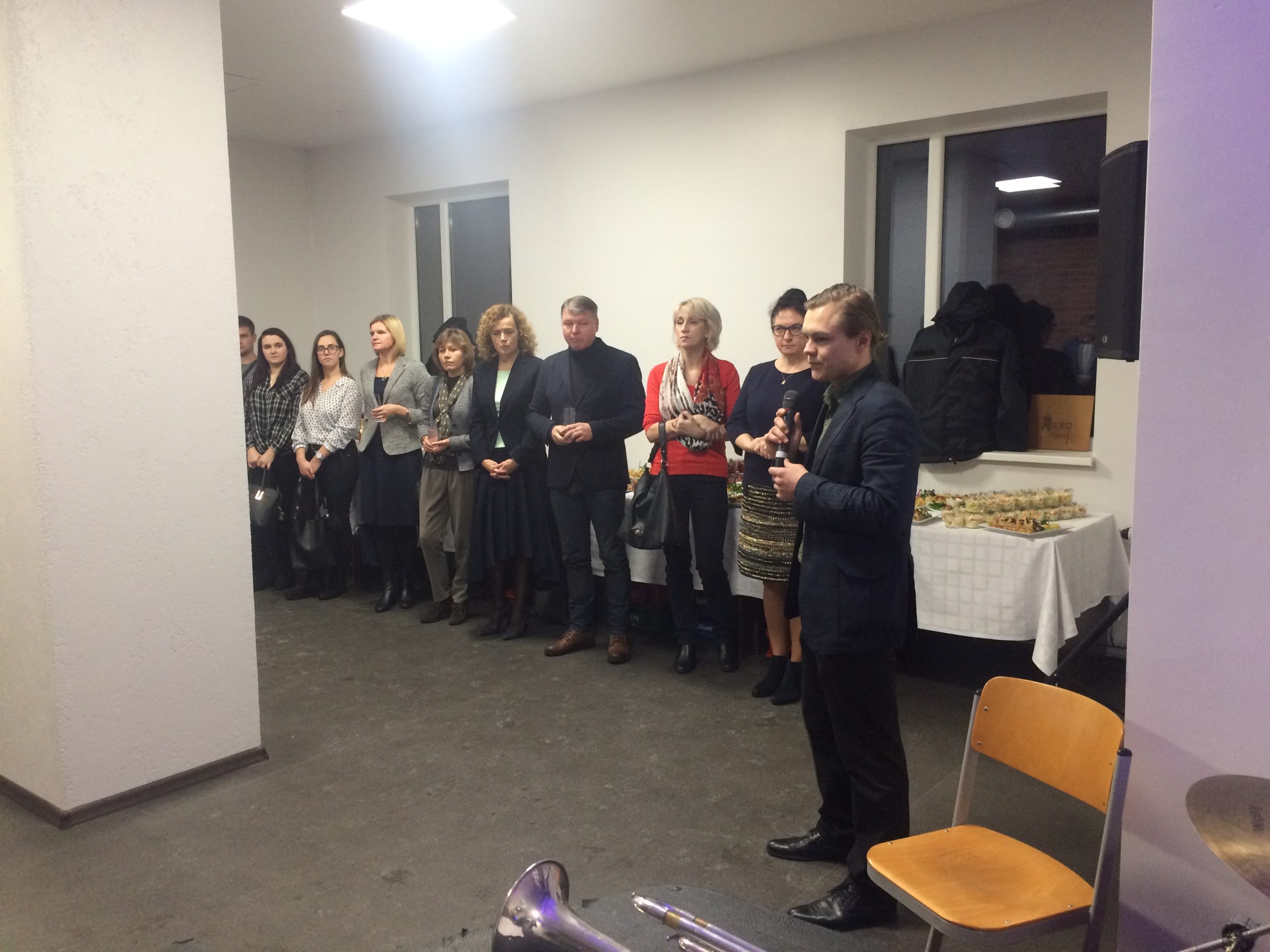
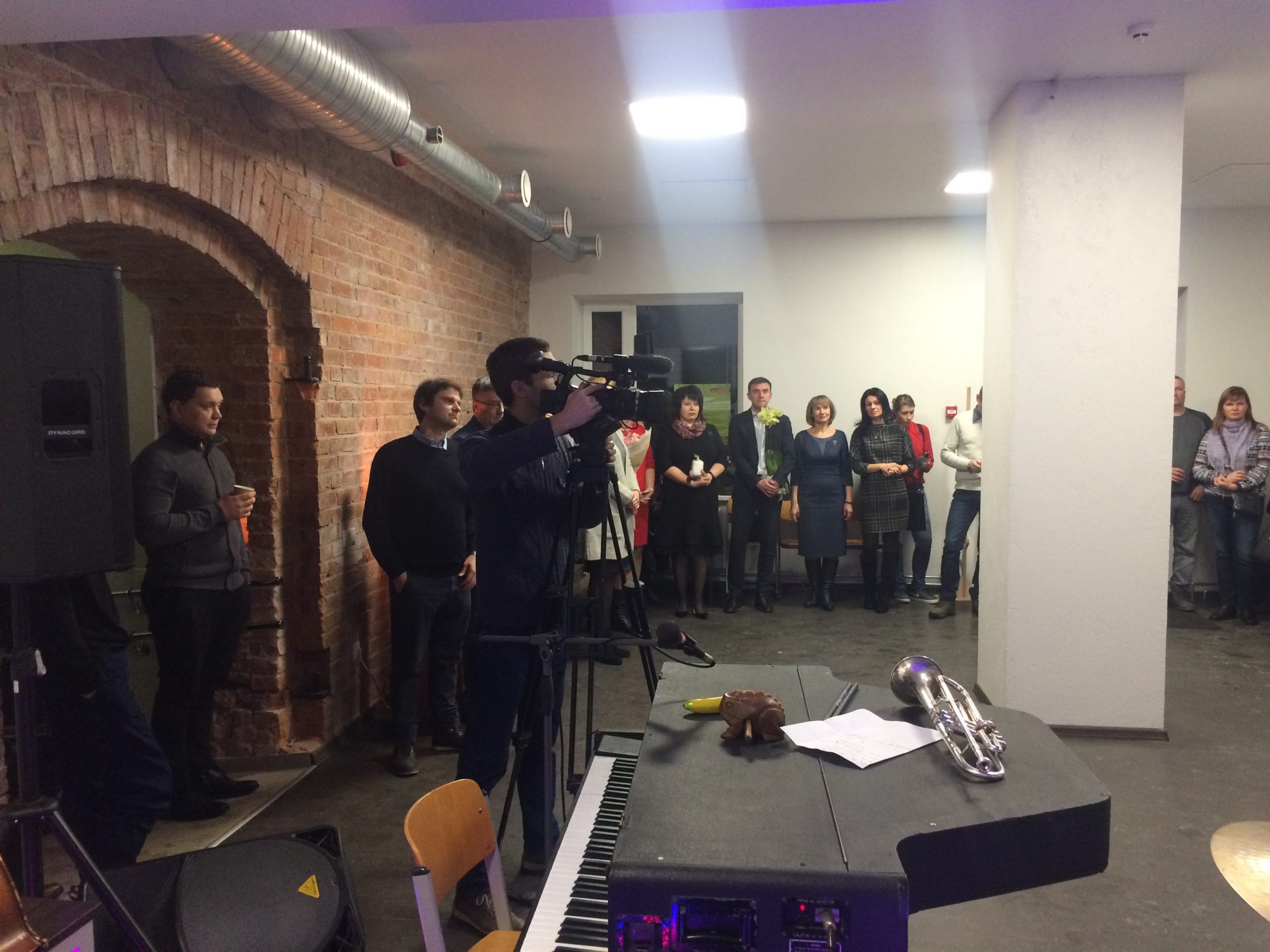
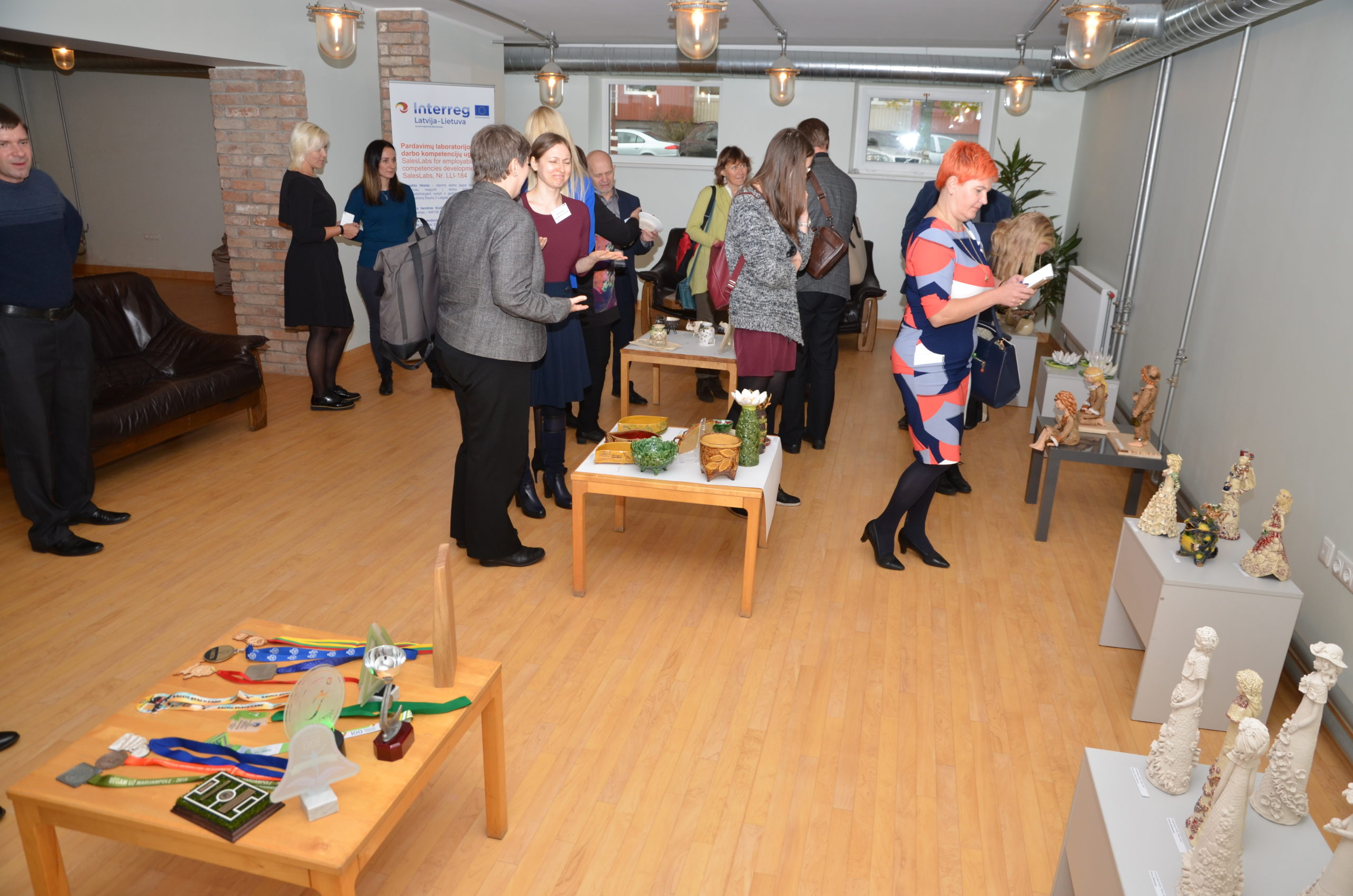
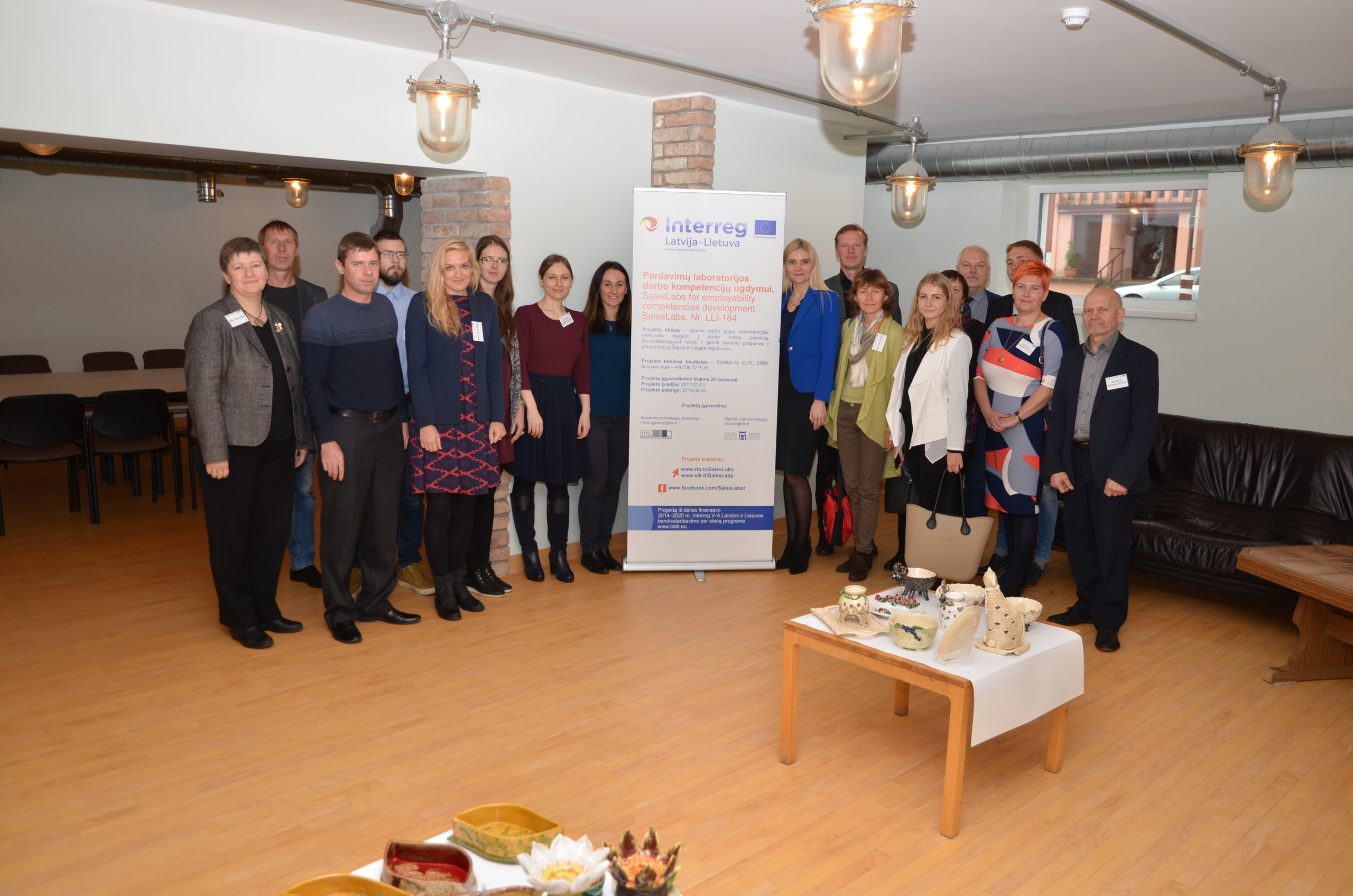





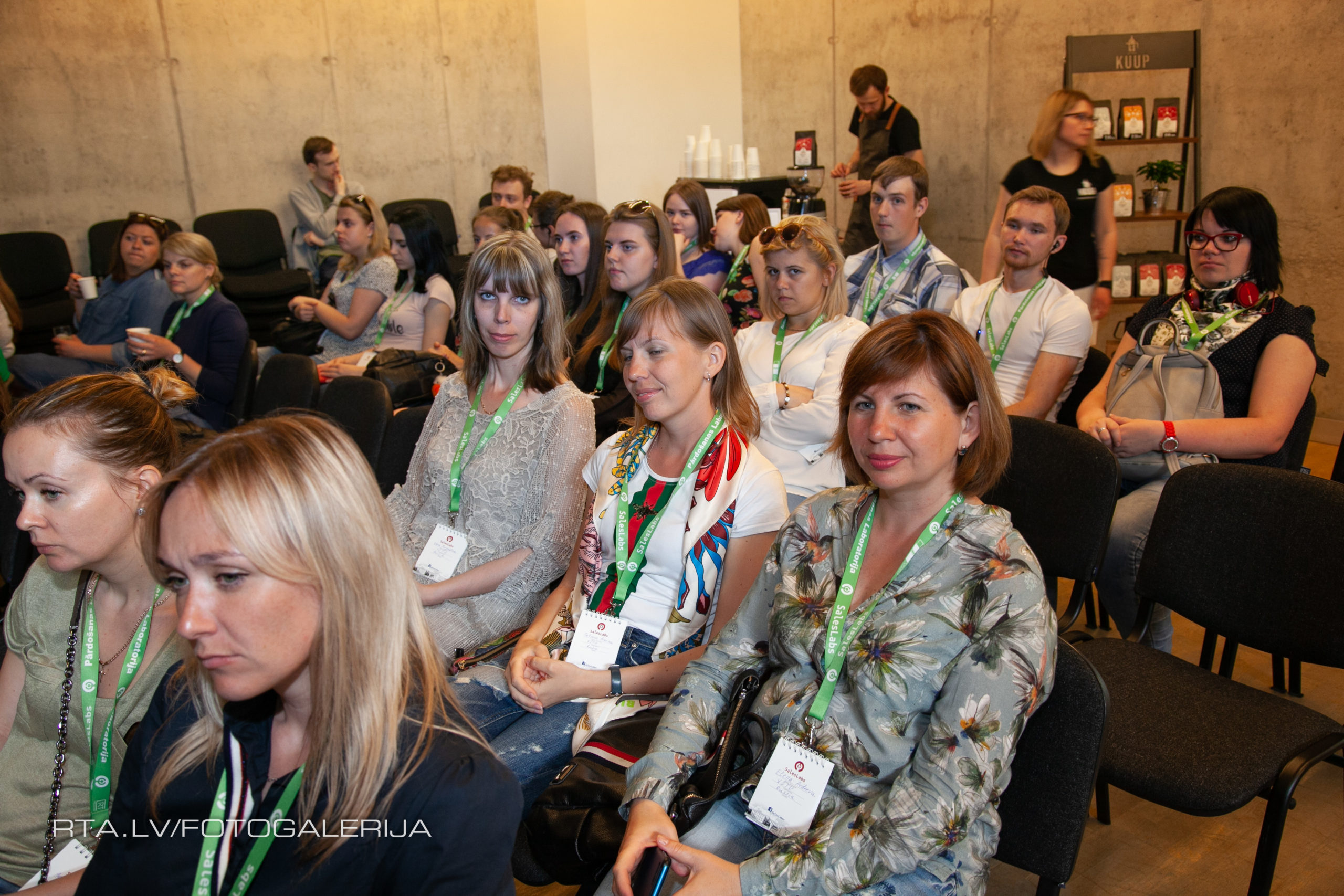 Final conference was organised by RTA in order to present project results, SalesLabs activities, improved study courses and implementation results. Cross – border collaboration and Labor Mobility among partner countries has been presented to society.
Final conference was organised by RTA in order to present project results, SalesLabs activities, improved study courses and implementation results. Cross – border collaboration and Labor Mobility among partner countries has been presented to society.
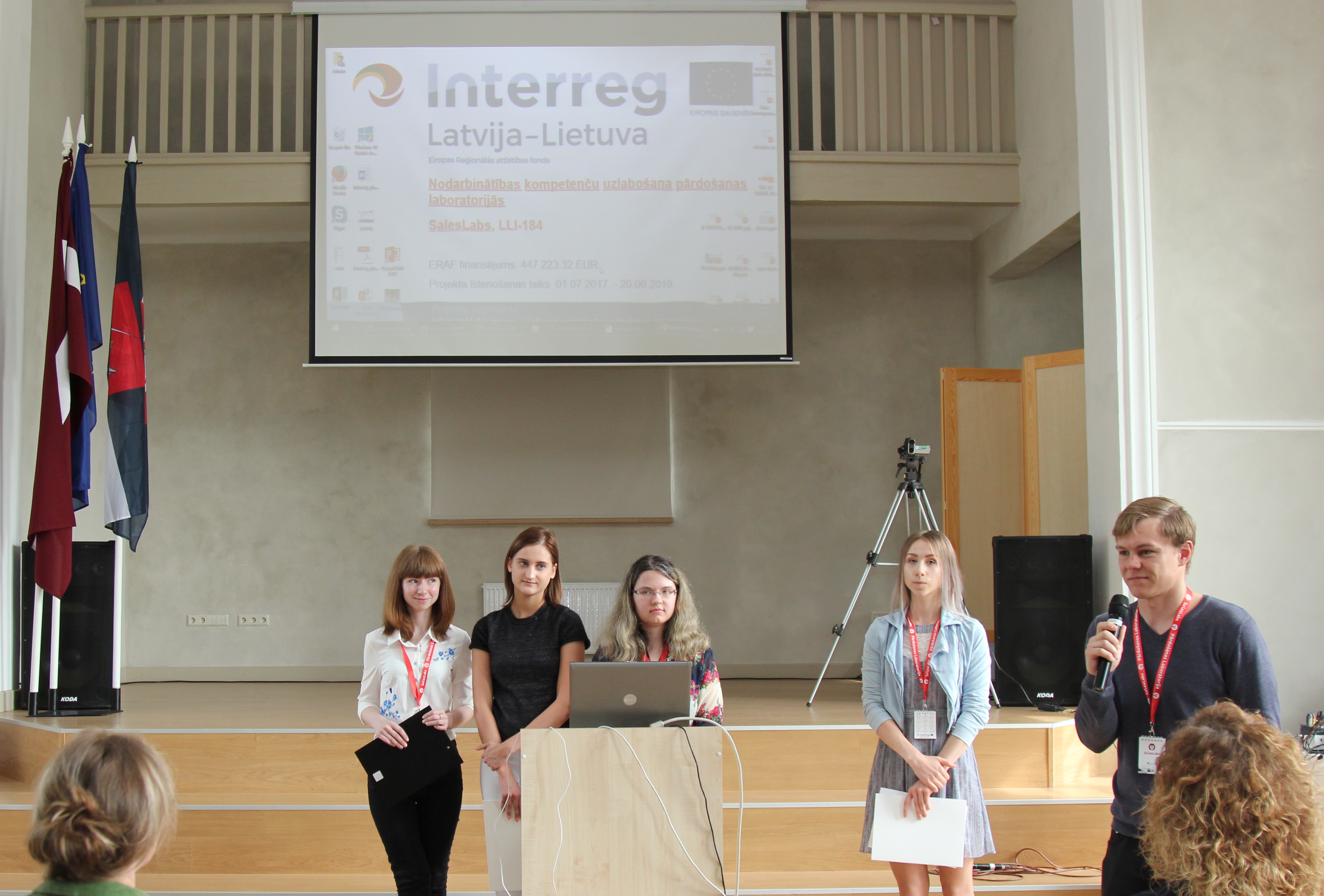
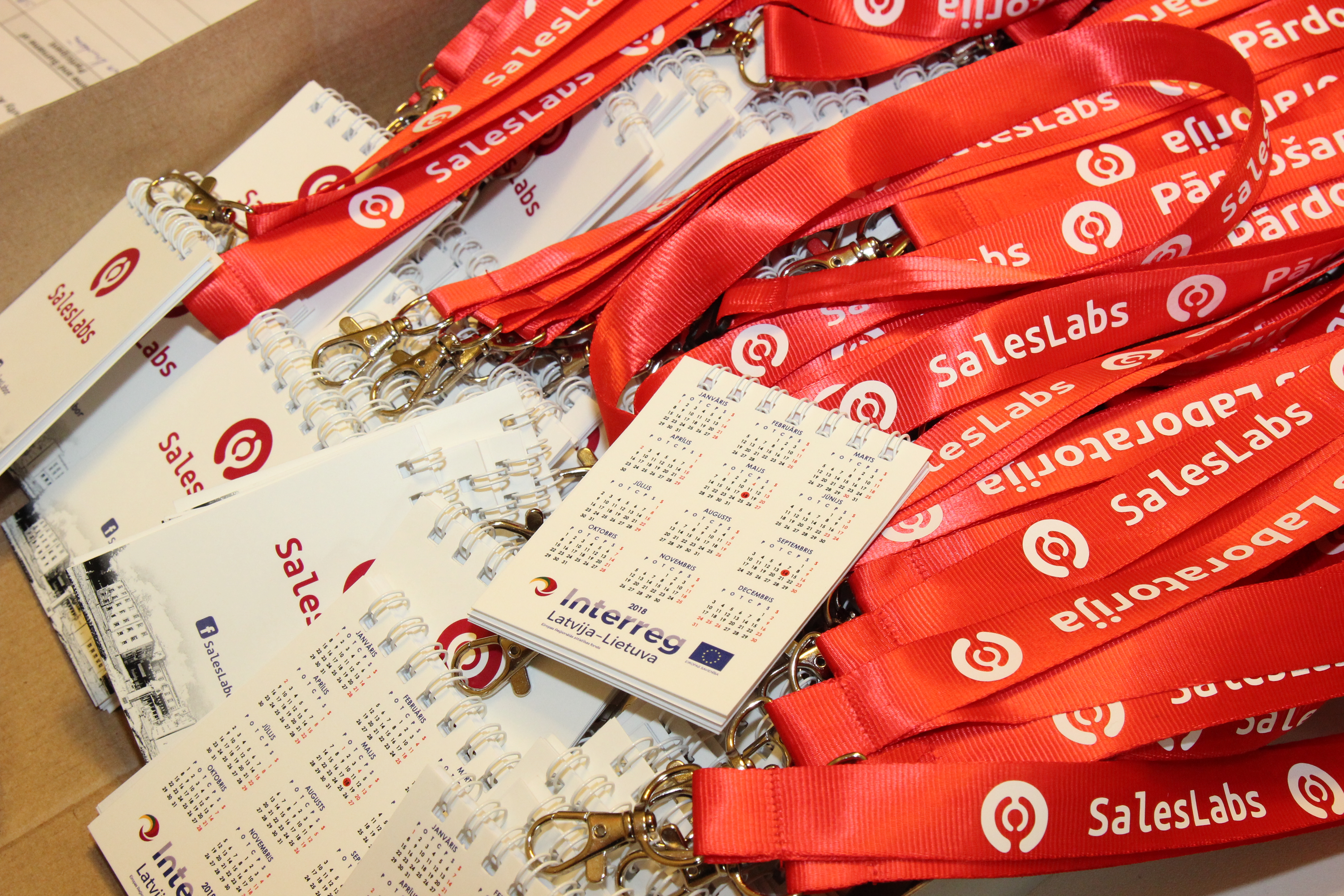
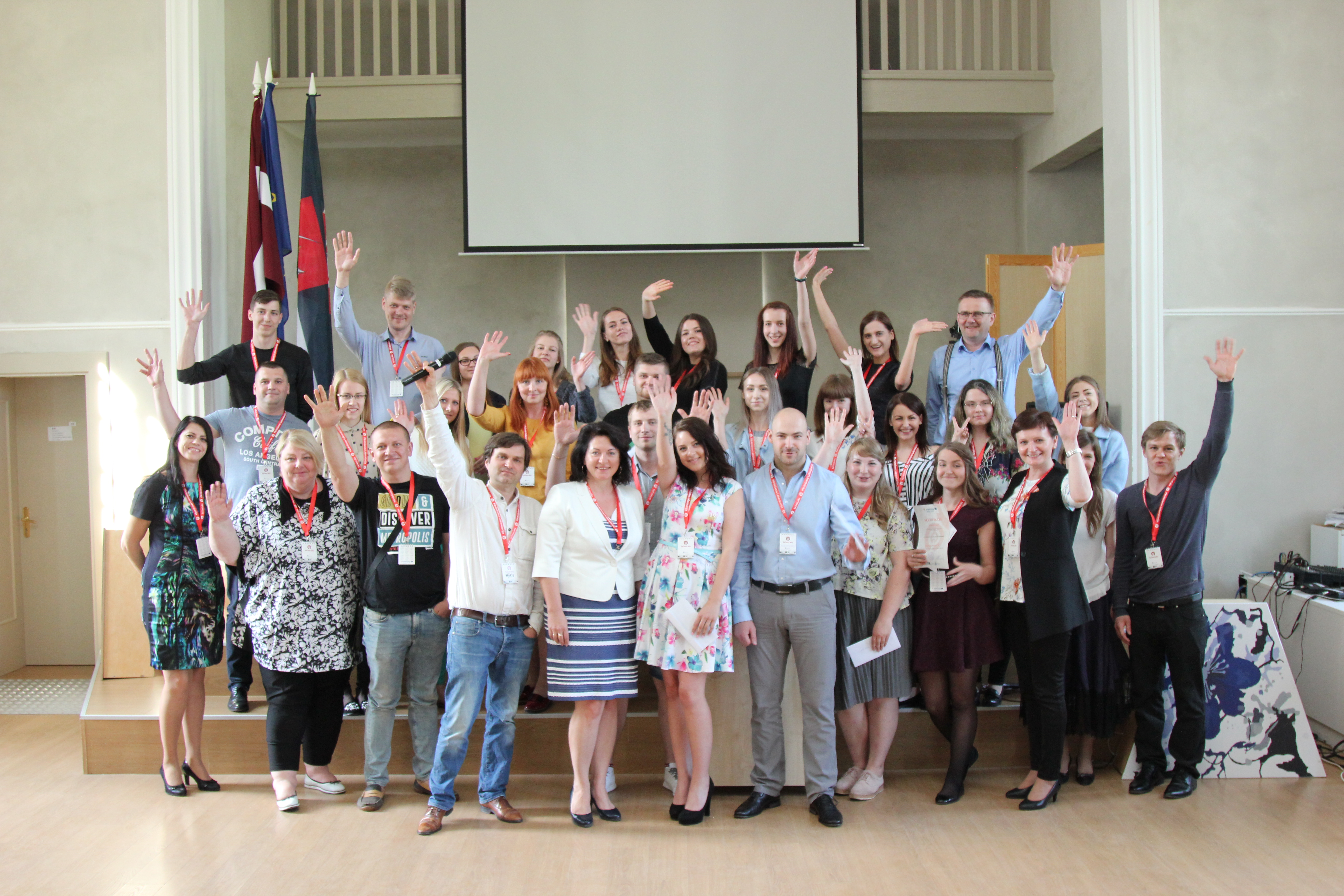
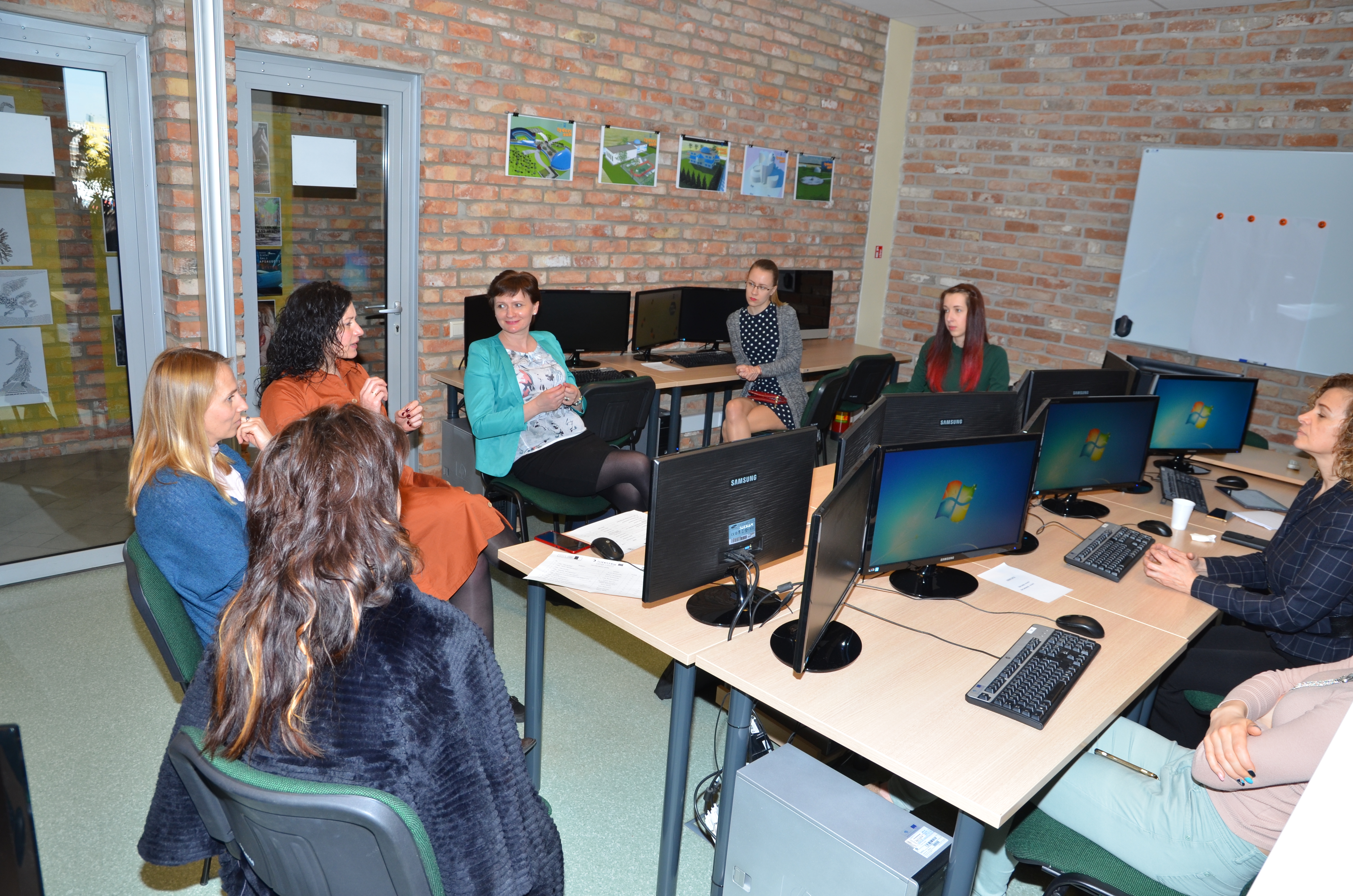
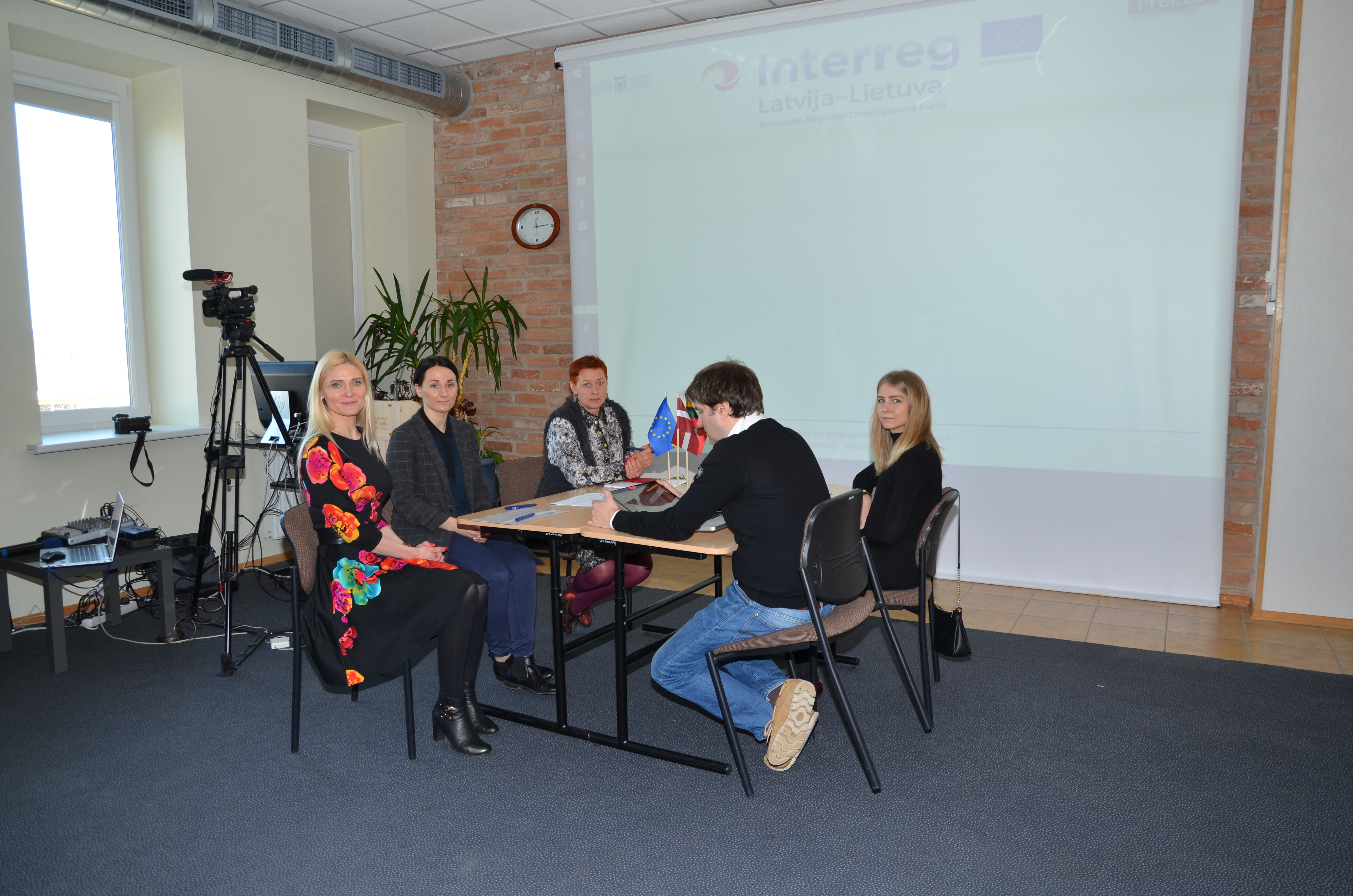
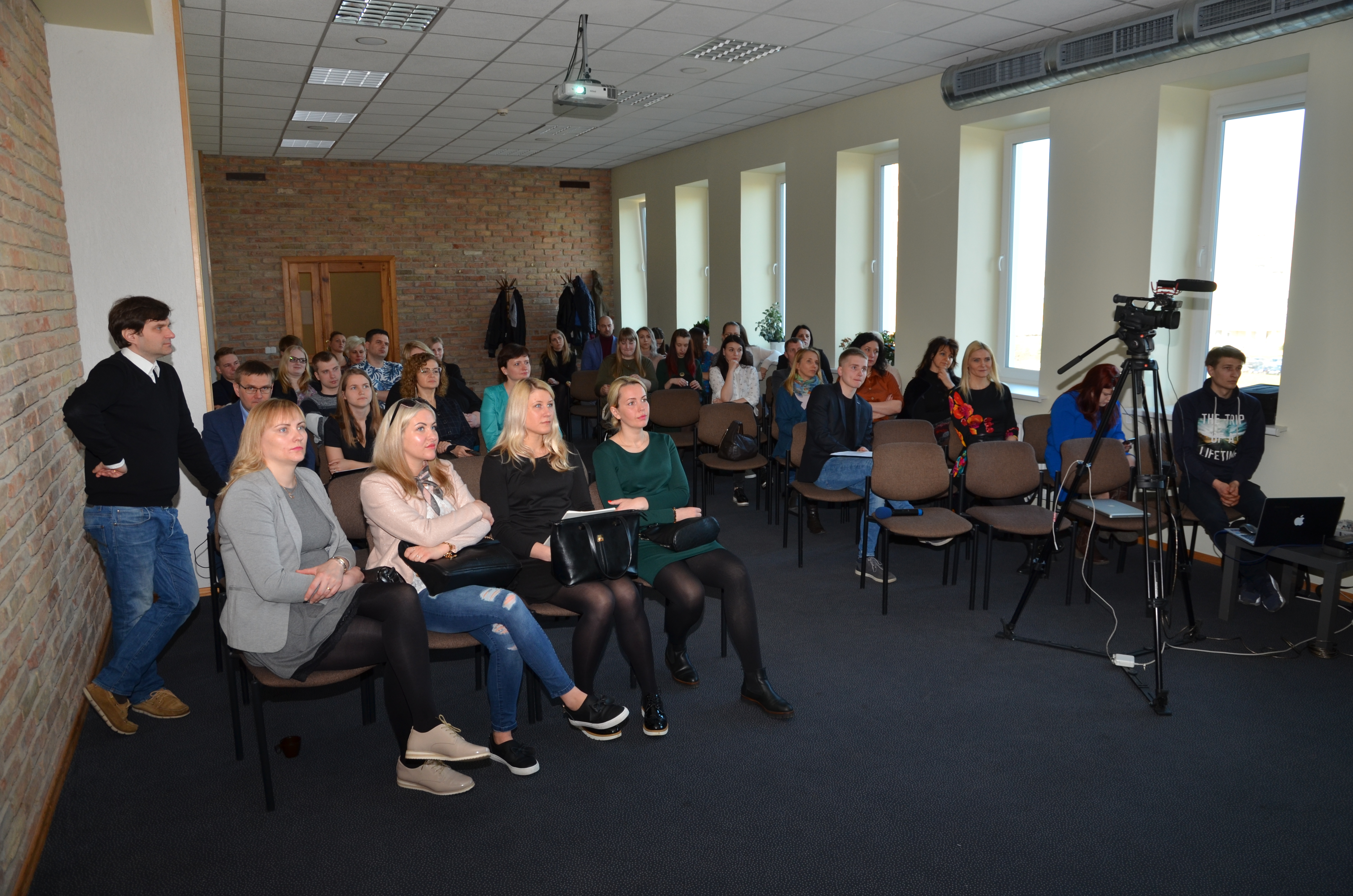
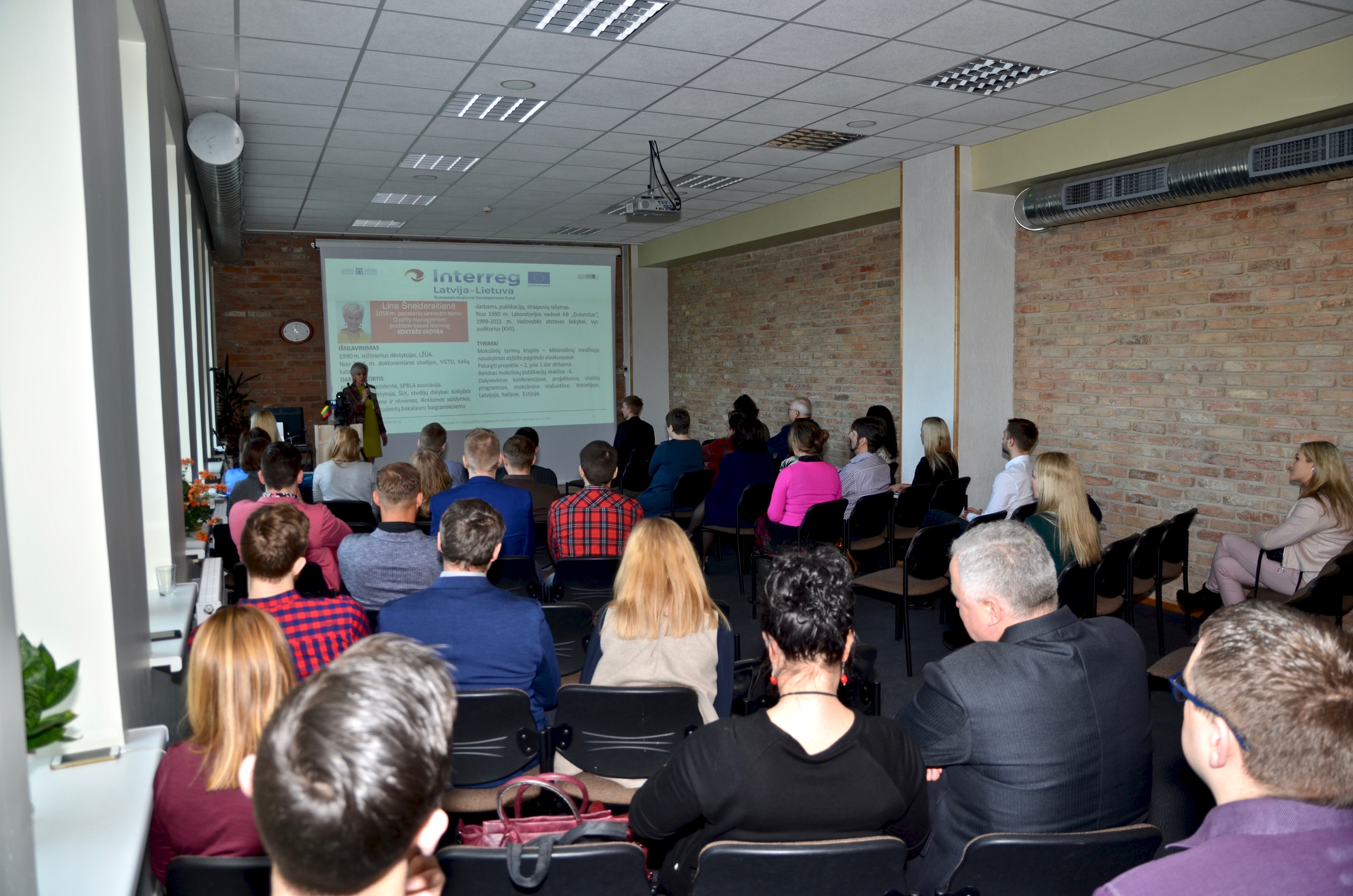 2018 m. kovo 15-16 dienomis Šiaurės Lietuvos kolegijoje vyko antrosios projekto „SalesLabs“ (LLI 184) kūrybinės dirbtuvės. Kūrybinės dirbtuvės prasidėjo jungtinės Latvijos ir Lietuvos aukštųjų mokyklų dėstytojų ir verslininkų komandos apsilankymu Šiaulių regiono įmonėse. Tos pačios dienos vakarą dėstytojai ir verslininkai aptarė lankytų įmonių veiklos iššūkius ir problemas. Antroji kūrybinių dirbtuvių diena buvo skirta studijų turinio ir verslo problemų mainams. Abiejų aukštųjų mokyklų dėstytojai pristatė savo dalykų turinį, o taip pat galimybes taikant PBL metodą į dėstymą ir paskaitas integruoti realių verslo problemų sprendimą. Verslo įmonės kūrybingai pristatė savo įmones ir jiems šiuo metu aktualiausias verslo problemas. Po pietų idėjų ir verslo problemų mainai persikėlė į individualias konsultacijas tarp verslininkų ir dėstytojų, per kurias abi pusės aptarė tolimesnes bendradarbiavimo galimybes sprendžiant realias verslo situacijas.
2018 m. kovo 15-16 dienomis Šiaurės Lietuvos kolegijoje vyko antrosios projekto „SalesLabs“ (LLI 184) kūrybinės dirbtuvės. Kūrybinės dirbtuvės prasidėjo jungtinės Latvijos ir Lietuvos aukštųjų mokyklų dėstytojų ir verslininkų komandos apsilankymu Šiaulių regiono įmonėse. Tos pačios dienos vakarą dėstytojai ir verslininkai aptarė lankytų įmonių veiklos iššūkius ir problemas. Antroji kūrybinių dirbtuvių diena buvo skirta studijų turinio ir verslo problemų mainams. Abiejų aukštųjų mokyklų dėstytojai pristatė savo dalykų turinį, o taip pat galimybes taikant PBL metodą į dėstymą ir paskaitas integruoti realių verslo problemų sprendimą. Verslo įmonės kūrybingai pristatė savo įmones ir jiems šiuo metu aktualiausias verslo problemas. Po pietų idėjų ir verslo problemų mainai persikėlė į individualias konsultacijas tarp verslininkų ir dėstytojų, per kurias abi pusės aptarė tolimesnes bendradarbiavimo galimybes sprendžiant realias verslo situacijas. 2018 vasario 22-23 d. įvyko kūrybinės dirbtuvės, kuriose Latvijos Rezeknės ir Šiaulių regionų verslininkai bei Latvijos Rezeknės technologijų akademijos ir Šiaulių Šiaurės Lietuvos kolegijos dėstytojai aptarė bendradarbiavimo galimybes integruojant konkrečias verslo problemas į projekto metu pagal probleminio mokymosi metodą dėstomų dalykų turinį. Abiejų šalių verslininkai kūrybiškai pristatė savo įmones bei studentams siūlomas spręsti verslo problemas. Latvijos ir Lietuvos aukštųjų mokyklų dėstytojai pristatė savo dalykų turinį bei galimybes dirbant su studentais ir taikant probleminio mokymosi metodą spręsti konkrečias verslo problemas. Kiekvienas dėstytojas turėjo galimybę pasirinkti įmones, su kuriomis pageidautų bendradarbiauti ir būtų suinteresuotas pasiūlyti studentams spręsti tos įmonės veiklos problemas.
2018 vasario 22-23 d. įvyko kūrybinės dirbtuvės, kuriose Latvijos Rezeknės ir Šiaulių regionų verslininkai bei Latvijos Rezeknės technologijų akademijos ir Šiaulių Šiaurės Lietuvos kolegijos dėstytojai aptarė bendradarbiavimo galimybes integruojant konkrečias verslo problemas į projekto metu pagal probleminio mokymosi metodą dėstomų dalykų turinį. Abiejų šalių verslininkai kūrybiškai pristatė savo įmones bei studentams siūlomas spręsti verslo problemas. Latvijos ir Lietuvos aukštųjų mokyklų dėstytojai pristatė savo dalykų turinį bei galimybes dirbant su studentais ir taikant probleminio mokymosi metodą spręsti konkrečias verslo problemas. Kiekvienas dėstytojas turėjo galimybę pasirinkti įmones, su kuriomis pageidautų bendradarbiauti ir būtų suinteresuotas pasiūlyti studentams spręsti tos įmonės veiklos problemas.